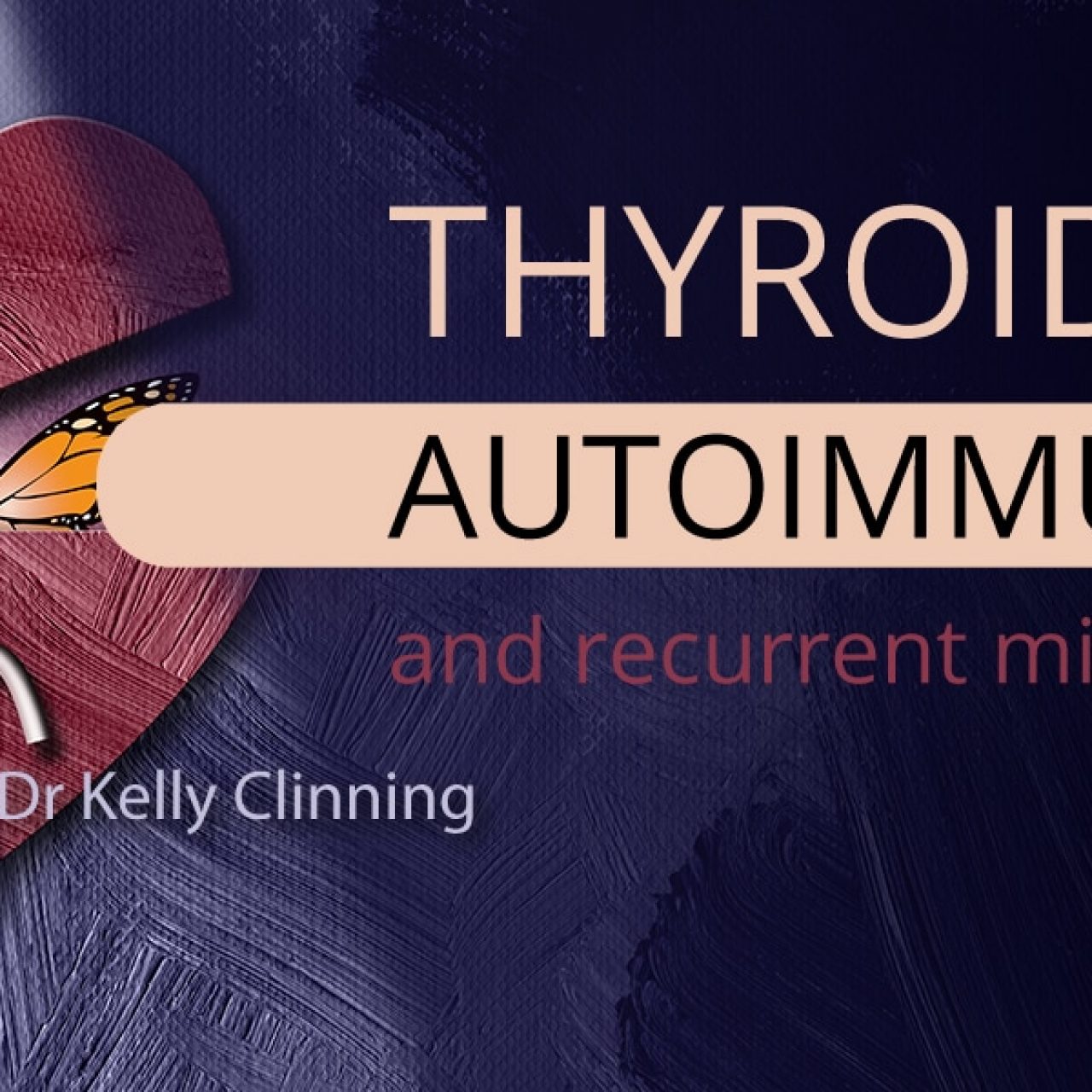Many women have experienced the devastating impacts of recurring miscarriages. When this occurs, a full thyroid assessment should always be considered in the absence of a known cause. In many cases, this group of women have had a basic thyroid assessment done. Typically, this has only covered TSH. In even fewer cases, it also measured the thyroid hormones known as free T4 and free T3.
Emerging evidence now suggests that we should also be looking for the presence of thyroid antibodies, even if the other thyroid markers are normal. The American Journal of Reproductive Immunology published a meta-analysis on this topic this year. It summarized the research to date and concluded that “The presence of serum antithyroid antibodies does harm to women and can even lead to recurrent miscarriages.”1
What is Thyroid Autoimmunity?
Thyroid autoimmunity is the most prevalent autoimmune condition in women of reproductive age1. In fact, women are five times more likely to have thyroid autoimmunity than men1.
Thyroid autoimmunity means that either one of two thyroid antibodies is elevated in the blood. These antibodies are part of the immune system that has mistakenly decided to target its own tissue. It leads to thyroid gland destruction, inflammation, and immune system activation. The cause of this autoimmunity is still not fully understood, but infections, extreme stress and trauma, and genetics all likely play various roles.
How Does Thyroid Autoimmunty Impact Miscarriage Risk?

Several studies have found a higher rate of thyroid autoimmunity in women with recurrent miscarriages. In fact, this autoimmunity ranges from 19% to 36% of the women tested1.
The reasons that thyroid autoimmunity impacts miscarriage rates are still being investigated. That said, recent research suggests that thyroid antibody presence indicates a state of “global immune dysfunction” in the body. This could impact the developing placenta, endometrium, and fetus2.
Pregnancy is a natural state of immune system shifting that allows for fetal implantation and growth. This study found that thyroid autoimmunity impacted this immune response in several ways. These include the increased movement and activity of cytotoxic natural killer cells that impact the immune response in the uterus3.
Another study suggests that thyroid autoimmunity may cause changes to the endometrium, reducing receptivity and implantation4
Measuring Thyroid Antibodies
Two thyroid antibodies can be tested in the blood to determine whether someone has thyroid autoimmunity. These two antibodies are called Anti-TPO and Anti-TG. An elevated level of either of these is evidence of thyroid autoimmunity.
Measuring thyroid antibodies is a simple process and can be done in a single blood draw. No fasting is required for this test, and it can be run any day of a women’s menstrual cycle, at any time of day.
Next Steps
I’ve written another article on how the thyroid impacts fertility, pregnancy and postpartum health if you’d like to read more.
And of course, if you’re in Ontario or the greater Toronto area and are ready to get a naturopathic perspective, you can book an appointment with one of our naturopathic doctors with a thyroid prescribing license at the White Lotus clinic. Online booking is here.
References
1 Xie, J., Jiang, L., Sadhukhan, A., Yang, S., Yao, Q., & Zhou, P. et al. (2020). Effect of antithyroid antibodies on women with recurrent miscarriage: A meta‐analysis. American Journal Of Reproductive Immunology, 83(6). doi: 10.1111/aji.13238
2 Thangaratinam, S., Tan, A., Knox, E., Kilby, M., Franklyn, J., & Coomarasamy, A. (2011). Association between thyroid autoantibodies and miscarriage and preterm birth: meta-analysis of evidence. BMJ, 342(may09 1), d2616-d2616. doi: 10.1136/bmj.d2616
3 Twig, G., Shina, A., Amital, H., & Shoenfeld, Y. (2012). Pathogenesis of infertility and recurrent pregnancy loss in thyroid autoimmunity. Journal Of Autoimmunity, 38(2-3), J275-J281. doi: 10.1016/j.jaut.2011.11.014
4 Wu, Z., Cai, Y., Xia, Q., Liu, T., Yang, H., Wang, F., Wang, N., Yu, Z., Yin, C., Wang, Q. and Zhu, D., 2019. Hashimoto’s thyroiditis impairs embryo implantation by compromising endometrial morphology and receptivity markers in euthyroid mice. Reproductive Biology and Endocrinology, [online] 17(1). Available at: <https://rbej.biomedcentral.com/articles/10.1186/s12958-019-0526-3>.





